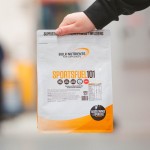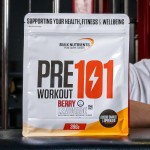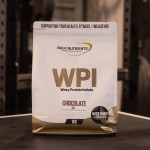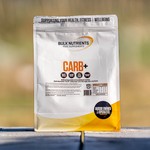Nutrient Timing: A Useful Tool or an Unnecessary Complexity?

Peri-Workout Nutrition: What the science says?
PRE:
From pro-level athletes to recreational exercisers, we all face the same question when it comes to optimizing exercise performance – what should we eat prior to a bout of exercise? Most people vaguely know that the role of pre workout nutrition is to make sure adequate energy is available to optimize performance, and to sustain the performance duration by delaying the onset of fatigue.
An interesting study by Gleeson and colleagues, had subjects exercise to exhaustion above 70% of their VO2 Max following the consumption of a glucose drink or a placebo. The study findings reported a 12% improvement in performance when subjects consumed ~70g of carbohydrates (1g per kg of body weight) 1 hour prior to the exercise bout. A similar study by Wright and colleagues saw a greater work output, significantly improved endurance, and greater time to exhaustion when athletes were fed carbohydrates 3 hours pre exercise compared to placebo.
So, carbohydrates will improve performance if taken near the exercise bout, but how much should we consume?
Even though feeding recommendations are highly variable from person to person (plus recommendations differ based on exercise duration and intensity), it seems like 1-4g of carbs per kg of bodyweight and 0.15-0.25g of protein per kg of bodyweight is the recommended range if eating ~4 hours prior to the session. If pre exercise meal is consumed 2 hours before, the recommendation is to aim for ~1g of carbs per kg of bodyweight.
INTRA:
If pre workout fueling is inadequate OR if the exercise is really hard and long, typically glycogen reserves deplete substantially, causing a faster onset of fatigue and reduced performance. We all know how it feels to hit that wall, we’ve all been there, and it’s not fun… that’s why it is essential we fuel correctly during exercise as well.
Over the years, multiple studies have shown the effectiveness of carbohydrate consumption (liquid form) during exercise over placebo. For instance, a study by Wright and colleagues, had well-trained cyclists exercise at 70% VO2 Max until exhaustion to discover the effects of carbohydrates on metabolic responses and exercise performance. The subjects were divided into 4 groups:
- No carbohydrates
- Carb fed pre exercise (meal)
- Carb fed during exercise(supplement drink)
- Carb fed before and during exercise (meal + supplement drink)
Like previous literature, carbohydrate consumption pre and during exercise significantly improved work output, time to exhaustion, and prolonged fatigue. However, the improvements in exercise performance were greatest with a combination of pre AND during carbohydrate consumption.
For endurance, it seems like 0.1-0.2g of carbs (liquid form) per kg of body weight every 20 minutes during exercise is a good place to start. This would equate to a few gulps of SportsFuel 101.
It is worth noting that different types of carbs have different rates of oxidation as well as different transport systems. Consuming multiple types of carbohydrates (e.g., glucose and fructose) has shown to be superior since it increases the rate of carbohydrate uptake and exogenous carbohydrate oxidation compared to just one type of carbohydrate. This is because too much of one sugar can saturate the transport system and slow the rate of uptake and usage.
POST:
Post-exercise nutrition is extremely important for muscle glycogen replenishment, reducing muscle damage, and increasing protein synthesis. Furthermore, specific nutrient intake (especially carbohydrates) right after an exercise bout can also result in enhanced training adaptations and reduced recovery time (especially for those training multiple times per day).
A study by Beleen et al. 2010, concluded that for optimal muscle glycogen restoration, one must ingest between 1.0-1.5 grams of carbohydrates per kilogram per hour within 2 hours post-exercise; and that consumption of carbs should continue for up to 6 hours post-exercise in 30 min intervals for maximum glycogen resynthesis.
Also, post-exercise ingestion of amino acids and/or protein is of great importance because it causes the stimulation of muscle protein synthesis. Numerous studies have demonstrated how increases in protein synthesis rates support positive protein balance, which is essential for reducing the catabolic effects from training (muscle damage repair and skeletal muscle reconditioning) to create a net anabolic effect. So, while carbohydrate intake is key post-exercise, protein is also critical for maximising recovery and training adaptations, as well as offsetting muscle damage.
Regarding carbohydrates, the literature suggests that around 1.5g per kg of body weight should be consumed within 30 minutes of finishing exercise (especially if another bout of exercise will happen in the next 24 hours) to help expedite recovery. On the other hand, the recommendations for post-exercise protein intake aren’t clear yet since it depends on whether the subject trained fed vs fasted, how many calories they are consuming, and what is the quality of the protein source. However, consuming around 0.5 g of protein per kg of body weight in a meal within 2hr post-exercise (or within 30 minutes if a pre exercise meal was more than 4 hours before exercise) seems to be a great starting point, especially for athletes.
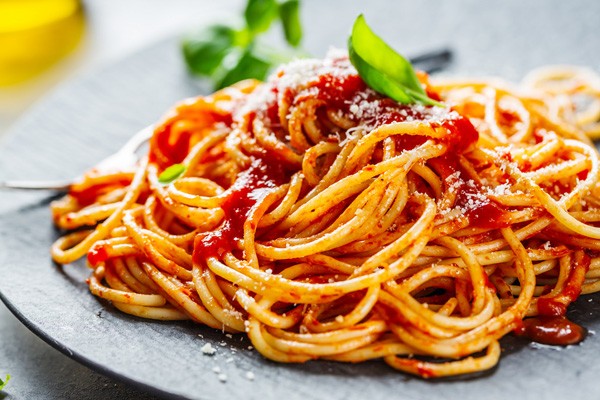
Breakfast 101 – Who is right?
Nutrient timing research has been unequivocally consistent when it comes to consuming specific nutrients at specific times around exercise. However, we must not ignore the remaining hours of the day since those hours can also influence later in the day performance and overall health.
Consistent fueling throughout the day has been shown to positively influence performance at other times of the day. For example, even though strategies like intermittent fasting can be a great tool for fat loss, exercising in a fasted state has shown to be inferior to fed training, especially in sessions lasting over 60 minutes.
A systematic review conducted in 2018, aimed to determine the effects of fasted vs fed state on exercise performance and found that fed state training enhanced performance significantly during long (60+ minutes) aerobic training. Although findings in shorter durations sessions did not quite reach significance, having a balanced protein-rich and moderate carbohydrate meal within 1 hour of waking up has been linked to improved appetite regulation and dietary adherence.
Nighttime Eating & Protein
Pre bed nutrition has gotten its fair minute of fame in the past years. Although it was believed that eating prior to sleep would influence body composition and performance negatively, research has clarified how specific nutrient consumption can be very beneficial for performance and overall health.
Even though nighttime feeding can influence metabolism, there’s a lack of quality evidence to show how that can translate into better performance. A study by Ormsbee et al. (2016), had 12 competitive runners consume chocolate milk (carbohydrate + protein) prior to sleep with the purpose of evaluating its effectiveness on performance and metabolism. Findings indicated that even though morning metabolism was positively influenced, the subjects did NOT see any improvements in performance the following day, which can make it seem like pre bed nutrition could be an unnecessary complexity.
On the other hand, the weight of the evidence is convincing when it comes to pre bed protein consumption. Research on this, shows it can improve muscle protein synthesis rates, recovery, and adaptations from training.
An interesting RCT by Snijders et al. 2019, had young men consume protein supplements or a placebo every night for 12 weeks and concluded that the supplement group had significant improvements in muscle protein synthesis compared to placebo.
Where do we stand then?
Well, it becomes extremely hard to demonstrate the effectiveness of nighttime feeding given the importance of total daily energy intake. Even though protein feeding prior to sleep has shown to be beneficial, the main takeaway should be to focus not only on consuming a good amount of protein daily but to evenly spread that protein across meals to maximise muscle protein synthesis and recovery.
Some concluding comments…
The main role of nutrient timing is to facilitate optimal exercise performance, fasten recovery from that said exercise, and to maximise the adaptations desired. Indeed, we have numerous research studies demonstrating that careful ingestion of specific nutrients at the right times can have a profound impact on performance across a variety of exercise intensities, modes, and durations, and will encourage an improved physiological adaptation from the exercise. It's important to note that nutrient timing has no downsides (apart from a little extra planning), so if you are serious about getting the best results from your training, it is a domain you should explore.

Jackson Peos has completed a PhD at the University of Western Australia, and has a straightforward approach to nutrition and supplements.
He's completed his BSc in Sports Science, and Exercise & Health, and his BSc (Hons) in Exercise Physiology.
More about Jackson PeosReferences:
- Gollnick PD, Piehl K, Saltin B. Selective glycogen depletion pattern in human muscle fibres after exercise of varying intensity and at varying pedalling rates. J Physiol. 1974 Aug;241(1):45-57. doi: 10.1113/jphysiol.1974.sp010639. PMID: 4278539; PMCID: PMC1331071.
- Ormsbee MJ, Bach CW, Baur DA. Pre exercise nutrition: the role of macronutrients, modified starches and supplements on metabolism and endurance performance. Nutrients. 2014 Apr 29;6(5):1782-808. doi: 10.3390/nu6051782. PMID: 24787031; PMCID: PMC4042570.
- Saunders MJ, Kane MD, Todd MK. Effects of a carbohydrate-protein beverage on cycling endurance and muscle damage. Med Sci Sports Exerc. 2004 Jul;36(7):1233-8. doi: 10.1249/01.mss.0000132377.66177.9f. PMID: 15235331.
- Beelen M, Burke LM, Gibala MJ, van Loon L JC. Nutritional strategies to promote postexercise recovery. Int J Sport NutrExercMetab. 2010 Dec;20(6):515-32. doi: 10.1123/ijsnem.20.6.515. PMID: 21116024.
- Kerksick CM, Arent S, Schoenfeld BJ, Stout JR, Campbell B, Wilborn CD, Taylor L, Kalman D, Smith-Ryan AE, Kreider RB, Willoughby D, Arciero PJ, VanDusseldorp TA, Ormsbee MJ, Wildman R, Greenwood M, Ziegenfuss TN, Aragon AA, Antonio J. International society of sports nutrition position stand: nutrient timing. J Int Soc Sports Nutr. 2017 Aug 29;14:33. doi: 10.1186/s12970-017-0189-4. PMID: 28919842; PMCID: PMC5596471.
- Snijders T, Trommelen J, Kouw IWK, Holwerda AM, Verdijk LB, van Loon LJC. The Impact of Pre sleep Protein Ingestion on the Skeletal Muscle Adaptive Response to Exercise in Humans: An Update. Front Nutr. 2019 Mar 6;6:17. doi: 10.3389/fnut.2019.00017. PMID: 30895177; PMCID: PMC6415027.
- Gleeson M, Maughan RJ, Greenhaff PL. Comparison of the effects of pre exercise feeding of glucose, glycerol and placebo on endurance and fuel homeostasis in man. Eur J Appl PhysiolOccup Physiol. 1986;55(6):645-53. doi: 10.1007/BF00423211. PMID: 3536495.
- Mark A. Tarnopolsky MD PhD, Martin Gibala, Asker E. Jeukendrup & Stuart M. Phillips (2005) Nutritional needs of elite endurance athletes. Part II: Dietary protein and the potential role of caffeine and creatine, European Journal of Sport Science, 5:2, 59-72, DOI: 10.1080/17461390500137485
- Mark A. Tarnopolsky MD, PhD, Martin Gibala, Asker E. Jeukendrup & Stuart M. Phillips (2005) Nutritional needs of elite endurance athletes. Part I: Carbohydrate and fluid requirements, European Journal of Sport Science, 5:1, 3-14,DOI: 10.1080/17461390500076741
- Wright DA, Sherman WM, Dernbach AR. Carbohydrate feedings before, during, or in combination improve cycling endurance performance. J Appl Physiol (1985). 1991 Sep;71(3):1082-8. doi: 10.1152/jappl.1991.71.3.1082. PMID: 1757304.
- Costill DL, Sherman WM, Fink WJ, Maresh C, Witten M, Miller JM. The role of dietary carbohydrates in muscle glycogen resynthesis after strenuous running. Am J Clin Nutr. 1981 Sep;34(9):1831-6. doi: 10.1093/ajcn/34.9.1831. PMID: 7282610.
- Goh Q, Boop CA, Luden ND, Smith AG, Womack CJ, Saunders MJ. Recovery from cycling exercise: effects of carbohydrate and protein beverages. Nutrients. 2012;4(7):568-584. doi:10.3390/nu4070568
- Howarth KR, Moreau NA, Phillips SM, Gibala MJ. Coingestion of protein with carbohydrate during recovery from endurance exercise stimulates skeletal muscle protein synthesis in humans. J Appl Physiol (1985). 2009 Apr;106(4):1394-402. doi: 10.1152/japplphysiol.90333.2008. Epub 2008 Nov 26. PMID: 19036894.
- Levenhagen DK, Gresham JD, Carlson MG, Maron DJ, Borel MJ, Flakoll PJ. Postexercise nutrient intake timing in humans is critical to recovery of leg glucose and protein homeostasis. Am J Physiol Endocrinol Metab. 2001 Jun;280(6):E982-93. doi: 10.1152/ajpendo.2001.280.6.E982. PMID: 11350780.
- Aird TP, Davies RW, Carson BP. Effects of fasted vs fed-state exercise on performance and post-exercise metabolism: A systematic review and meta-analysis. Scand J Med Sci Sports. 2018 May;28(5):1476-1493. doi: 10.1111/sms.13054. Epub 2018 Feb 23. PMID: 29315892.
- Clayton DJ, Barutcu A, Machin C, Stensel DJ, James LJ. Effect of Breakfast Omission on Energy Intake and Evening Exercise Performance. Med Sci Sports Exerc. 2015 Dec;47(12):2645-52. doi: 10.1249/MSS.0000000000000702. PMID: 25970668.
- Ormsbee MJ, Gorman KA, Miller EA, Baur DA, Eckel LA, Contreras RJ, Panton LB, Spicer MT. Nighttime feeding likely alters morning metabolism but not exercise performance in female athletes. Appl PhysiolNutrMetab. 2016 Jul;41(7):719-27. doi: 10.1139/apnm-2015-0526. Epub 2016 Mar 2. PMID: 27329516.
